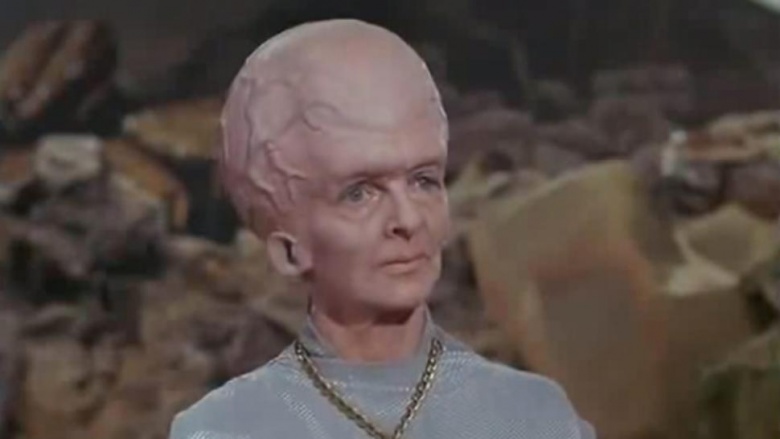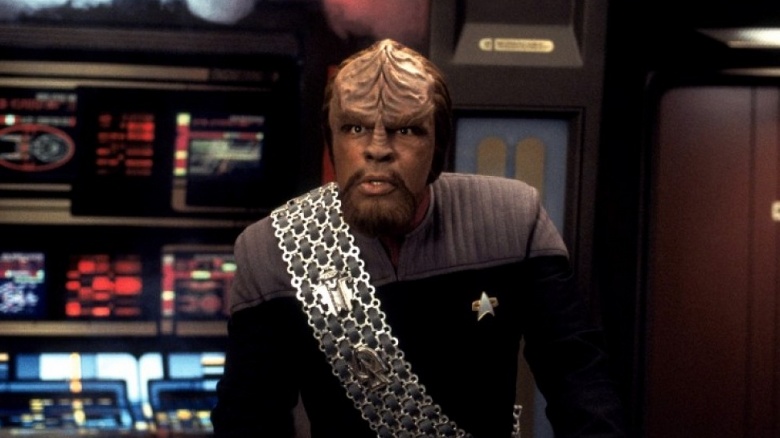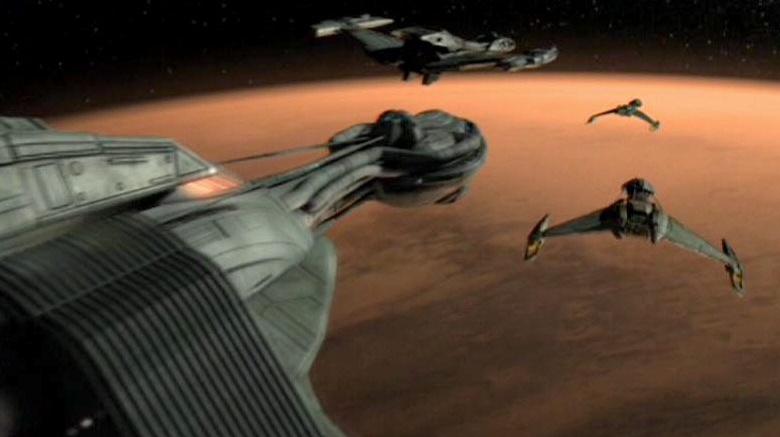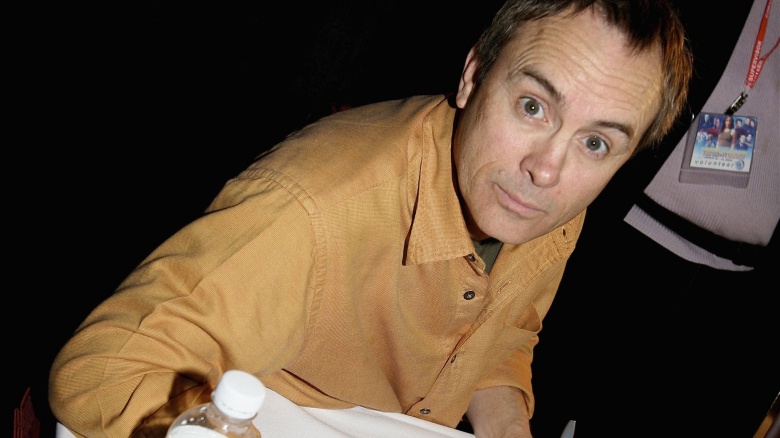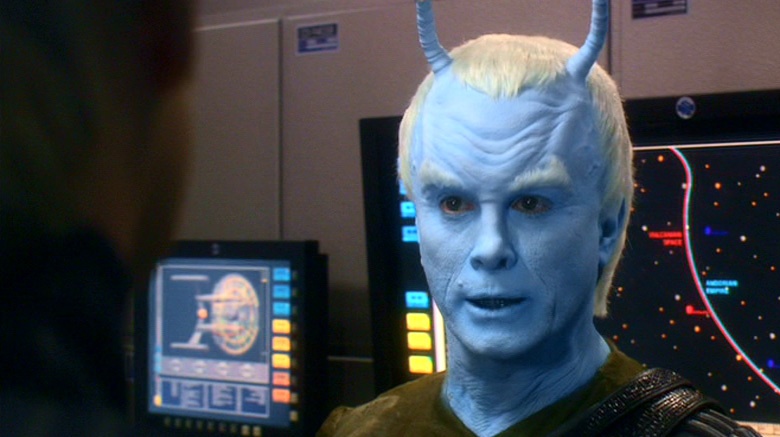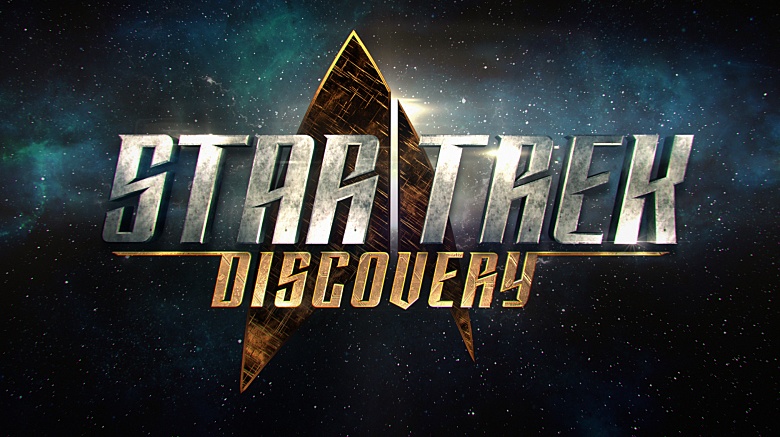Things We Want To See In Star Trek Discovery
Adding the latest chapter to one of sci-fi's most venerable franchises, Star Trek: Discovery hits streaming services next year. With a few months left before the premiere and only a little information from the crew, we've put together a list of some of the many things we want to see in the new show.
Aliens that aren't just humans in weird makeup
One of Star Trek's many old-school charms was its lack of creativity when it came to alien makeup—most of the show's alien designs relied on slapping rubber on an actor's forehead or giving them a slightly different skin color. Even iconic designs like the Vulcans and Klingons followed this tradition.
It was charming in the past, but now it's time to improve. We don't want a complete revamp of the classic designs, but Discovery needs to take advantage of modern technology and offer interesting alien designs that break from tradition. According to sources close to production, they have enough money: the budget for each episode is between $6 million and $7 million.
Even if they didn't have such a big budget, CGI is no longer as expensive as it once was. Stranger Things and Arrival both gave us fascinating alien designs on tight budgets, with the latter costing $47 million—less than one season of Discovery. So let's see some truly out-there designs—let's see weird aliens that defy our imagination. They have nothing holding them back, as long as they don't decide to give the Vulcans random tentacles or sparkly skin.
A Klingon Captain
At the end of the teaser trailer for Discovery, sharp-eared fans heard a faint sound usually associated with a Klingon ship turning invisible. With the show taking place 10 years before the original series, Klingons are sure to be involved somehow, but hopefully Discovery will break new ground by focusing stories around a Klingon captain.
Deep Space Nine did something similar during its run, with episodes showing Klingon ships during the Dominion War. But former showrunner Bryan Fuller planned to go further. Production sources told The Hollywood Reporter that Fuller wanted to have a Klingon captain, and even though he's since left production, it's still a great idea.
We could see Discovery telling the story of two ships—one Federation, the other Klingon. We could watch them either work together or act as antagonists. This would create a dynamic similar to Game of Thrones, developing the stories of Westeros and Daenerys Targaryen at the same time. It would also allow the show to really explore what makes humans tick by constrasting them with the gruff, violent Klingons. If Discovery borrows the technique, it would make the universe feel much bigger and give fans a reason to break out their dusty Klingon dictionary.
Federation-Klingon Cold War
In an interview reported by Entertainment Weekly Fuller teased the kick-off for the new series: "There's an incident and an event in Star Trek history that's been talked about but never been explored." Since the show is set 10 years before the Original Series, we are looking for an event around the in-universe decade of the 2240s. The one we want the most is the Federation-Klingon Cold War.
In the Star Trek universe, this war lasted 70 years. Intense tensions between the two governments led to increased militarization and military research. While the original series established these themes, Discovery can let the writers really dig in. Just imagine: a Star Trek series full of espionage, secret military projects, attempted assassinations and political intrigue.
Setting the show in the Cold War will also allow for space battles. According to the original series, the war went hot with the Battle of Donatu V in 2245, exactly within the range of the show. The battle was huge and ended with a draw. Seeing a gigantic Star Trek space battle with modern effects would thrill fans and bring in more viewers; plus, it's been awhile since a popular TV show has given us a really good space battle. In the EW interview Fuller was asked if the "event" in question was the Romulan War; he said that was close, but not it. The Klingon-Federation Cold War seems likely.
The encounter of the USS Farragut
One of the best original series episodes, "Obsession," depicted the Enterprise encountering a cloud creature that can instantly kill crew members. Kirk freaks out when he realizes what they're facing because years earlier when he was a gunnery officer on the USS Farragut, the creature attacked his ship, but Kirk hesitated to shoot the ship's phasers. When half the crew was killed he blamed himself, and "Obsession" follows his quest to kill the creature.
Basing an episode around this event would let Discovery reference the original series. They can't just ignore it; the two shows are set too close. But working in overt references is frustrating for fans—like when Star Trek: Into Darkness copied huge chunks of the plot of Star Trek: The Wrath of Khan. Something like this would let the writers connect the two shows without cringe-worthy shoehorning.
The Farragut incident is obscure enough that only fans will get the reference, but the story is also worth diving into. Not only does it contain great horror elements, we would get to see a young James T. Kirk. A short appearance from the captain would make a great connection. They just need an actor who...can...talk...like...this.
The dark side of the Federation
Even though Star Trek is generally an optimistic show and we'd like to see that continue, Discovery would do well to show us the dark side of the Federation. Although they preach peace and non-aggression, the Federation is hellbent on colonizing the galaxy: in the original series, we see the Enterprise crisscrossing space to visit colonies and project Federation diplomacy to alien worlds. That all seems good, but what's living under the Federation actually like for a citizen? What about the planets that don't want to be colonized?
Deep Space Nine touched on this issue by introducing the Maquis, but we'd like to see it expanded in Discovery. Showing us the Federation impact on alien life would mirror current political debates in the Western world. We could see the Discovery crew struggling over whether they should interfere with violence to stop uprisings on Federation worlds. The show could also explore what happens when people living in the Federation become dissatisfied with the status quo. Certainly, there are people living in the Federation who don't like it. Show their stories. Help the audience understand that utopia comes at a price, and no government is perfect.
Jeffrey Combs in a role
Out of all the actors we want to see again, Jeffrey Combs is at the top of the list. That name might not ring a bell right away, but Combs has played an array of characters in the Star Trek world, including some of its best villains. In Deep Space Nine, he played Weyoun, a political overseer from the Dominion who had a creepy, slimy personality. During the show's run, Combs ended up playing multiple different characters, each with a different personality.
He also appeared in Voyager and Enterprise. In the latter, he played Andorian commander Thy'lek Shran—one of the best villains in Star Trek canon. Combs is extremely talented, and able to portray radically different characters so well that most people don't even realize that Shran and Weyoun are played by the same actor.
Combs would fit perfectly into Discovery. He specializes in playing creepy villains, which is something the show will need, and he's an actor that can fill out other roles as necessary. Having him in the cast would also give fans something to look forward to and help fight any anxiety they feel as the new series comes closer. In fact, let's just have Jeffrey Combs play every role in Discovery. What could go wrong?
More Andorians
Andorians are the blue-skinned aliens with antennae that first show up in the original series. Fans love them, but they've been overshadowed by the Vulcans and Klingons. It's a shame, because the Andorians are the most dynamic race in the show. Other alien races are monolithic: all Klingons are violent warriors. Vulcans are stoic and emotionless. Romulans are crafty and sneaky. But when the Andorians were onscreen, they were never one-dimensional.
Andorian culture mirrors modern human culture. They are violent and use a powerful military, mostly for homeland defense. Even though they aren't above torture and extortion, it's clear the Andorians use them out of a desire to protect their homes and families. People can relate to that. Everybody has an issue with torture and war, but most people are willing to put their morals aside when it comes to defending things they love. In that way, the Andorians are more like us than the humans in Star Trek.
In Discovery's timeframe, the Andorians have already joined the Federation. Having them play a major role provides a lot of dramatic tension between an emotional, violent race and the peaceful utopianism of the Federation that would lend itself to an exploration of the more damaging aspects of modern human culture. Hard-hitting analogies always work great in Star Trek, and the Andorians would make an effective delivery mechanism. Plus, we could get Jeffrey Combs to reprise his role as an Andorian commander—win-win.
Complex bad guys
Television has changed a lot over the past few decades. The last iteration of Star Trek ended in 2005, and even during the decade between now and then, the type of shows we see on TV have changed. One of the biggest changes: the way networks portray bad guys. Instead of keeping them as evil, one-dimensional characters, TV now gives us complex, almost relatable, villains.
Star Trek would benefit from this. Although there are some exceptions, Star Trek villains have never been complex. Khan wanted revenge; the Borg wanted to assimilate other species; General Chang wanted war. These are simple motivations. In the modern TV environment, viewers will scoff at such thinly characterized villains.
Hopefully Discovery takes a page from Bryan Fuller's Hannibal, which gave us some of the creepiest (but human) bad guys in television history. Discovery needs to have villains that frighten us, but that we can also understand—villains with realistic motivations that leave viewers thinking, "I can kind of understand where this guy is coming from." This complexity will capture the audience's attention and set Discovery apart from the rest of the Star Trek canon.
An appearance of the original Enterprise
In the franchise universe, the Enterprise is part of the Constitution class of starships. There are 11 identical ships in service with the United Federation of Planets, but the Enterprise was the most famous due to its captain and his adventures. They were designed to fulfill long-term exploration missions with little outside support and were famous for long five-year missions out into the unknown reaches of space. The ships started to come online in the 2240s, which fortunately for us puts them exactly in Discovery's timeframe.
While it might seem like useless fan service to show the Enterprise in the new show, seeing the old girl would actually provide continuity between the two series. Everything we've seen about Discovery leads us to believe it will have a more militaristic tone, which will contrast with the exploratory feeling of the original series. Instead of just having this difference go unexplained, Discovery could show the Federation slowly changing its emphasis over time, building exploration ships and not warships.
Seeing the Enterprise and Discovery together would highlight the optimism of Star Trek, where a battleship gives way to peaceful explorers. This is what we want to see in our world: warfare giving way to peace and scientific inquiry. Plus, seeing it on TV again would make more than one fanboy shed a tear (members of our staff included).
Emphasis on philosophy and hope
Even though we want to see more complex villains, sweet space battles, and the dark side of the Federation, the best thing Discovery can do is make a return to Star Trek's roots by exploring philosophical storylines that highlight mankind's search for knowledge. This is not to say Discovery needs to copy what came before, but it should tackle key issues.
All the other Trek shows have done this. The original series dealt with racism and nuclear proliferation, while Next Generation delivered episodes about political repression and early transgender rights. Later shows touched on hot-button issues like genocide, euthanasia and journalist ethics. Many episodes in the show have explored philosophical concepts like Kantian ethics or quantum immortality. It's all part of what makes Star Trek so special.
Nobody needs to be reminded that our world is a complex and scary place. With terrorism and economic hardship plaguing countless lives, we need a Star Trek that helps us make sense of the world. This doesn't mean moralizing, but rather giving viewers hope that despite our issues as the human race, we can deal with our problems and find ways to solve them. Instead of wallowing in dystopian malaise or post-apocalyptic cynicism, this show needs to give us a sense of hope in our future—hope that we can explore the stars together. We need Star Trek now more than ever.

